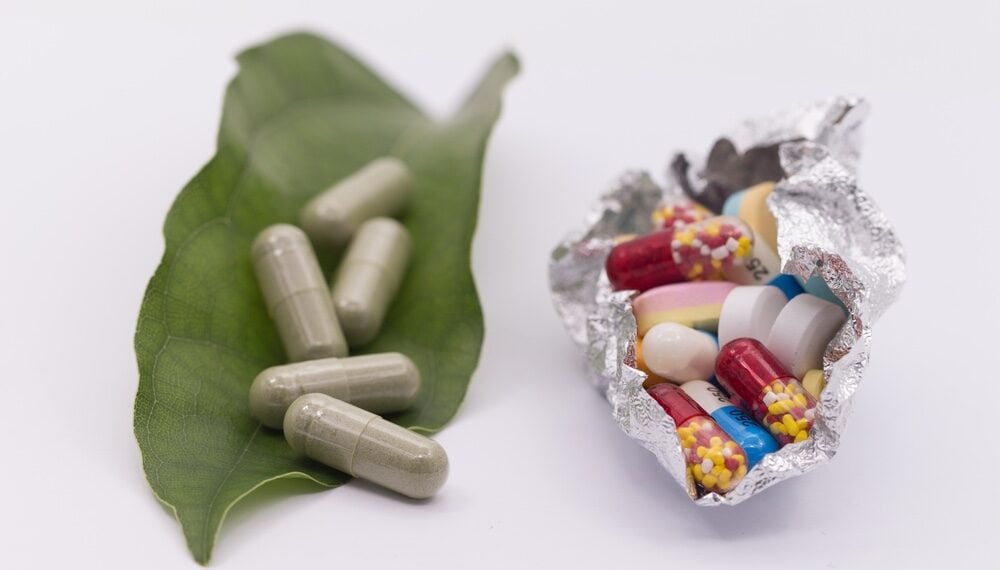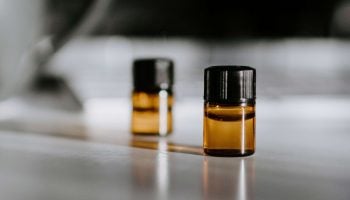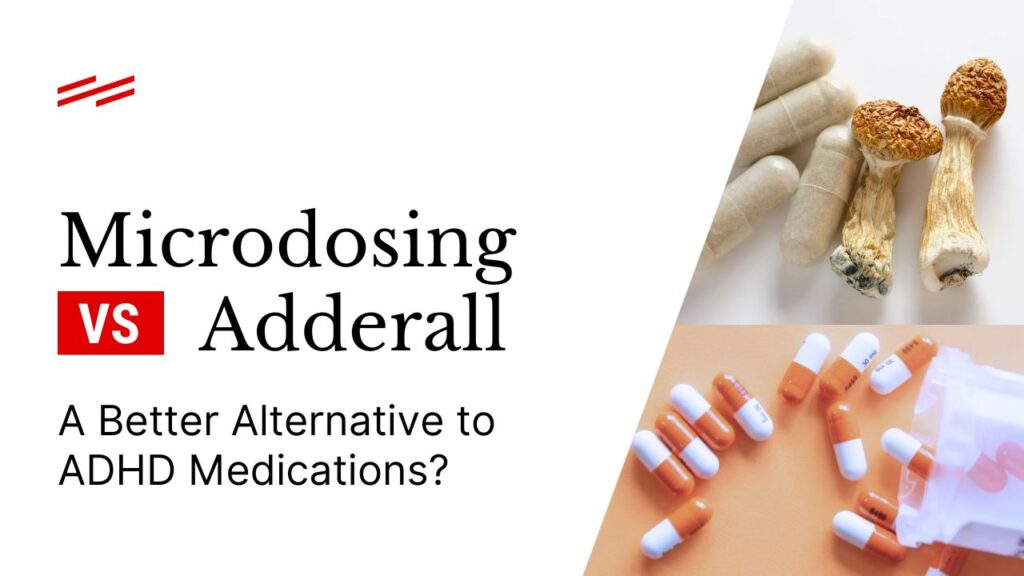
Disclaimer: Psychedelics are largely illegal substances, and we do not encourage or condone their use where it is against the law. However, we accept that illicit drug use occurs and believe that offering responsible harm reduction information is imperative to keeping people safe. For that reason, this document is designed to enhance the safety of those who decide to use these substances.
This article has been medically reviewed by Katrina Oliveros, MSN-ED, BSN
Maria Katrina, is a trauma-informed Wellness Educator and Psychedelic Harm Reduction Consultant. Beyond nursing, she supports health & wellness teams through medical aid, psychedelic harm reduction, and integration services.
Microdosing VS Adderall…
Is there a better alternative to those diagnosed with ADHD?
Insomnia, anxiety, and lost appetite are but a few common side effects of ADHD medications.
Because of these unwanted side effects and long-term risks to health, those with ADHD are forced to ask whether managing their symptoms is worth the high cost of these drugs. However, low-dose psychedelics could provide a solution.
With a growing number of online reports from microdosers using low-dose psychedelics to manage ADHD symptoms, could this practice be a safer and more effective alternative to medication?
Watch the video above or continue reading below where we’ll explore microdosing to treat ADD/ADHD, investigating the research and comparing microdosing to Adderall and other ADHD medications.
What is ADD/ADHD?

Attention-deficit hyperactivity disorder (ADHD) is one of the most common neurodevelopmental ailments, affecting nearly 10% of 3-17-year-olds in the US. Although many people think attention-deficit disorder (ADD) is separate from ADHD, it is actually just an outdated name for the disorder.
Usually first diagnosed in children and adolescents, ADHD is characterized by troubles with attention, impulse control, and being overly active.
Common signs and symptoms include:
- Being unable to focus on tasks
- Excessive daydreaming
- Forgetting and losing things
- Fidgeting and squirming
- Being overly talkative
- Recklessness
- Difficulties getting along with other children
Through brain imaging and genetic research, studies have found some key nervous system differences in people with ADHD, which are thought to underlie their symptoms.
These include:
- Lower activity in the prefrontal cortex: An area of the brain associated with controlling behavior, attention, and emotion.
- Problems with dopamine receptors: This reduces the brain’s responsiveness to dopamine, a chemical messenger important for memory reward and motivation.
- Problems with noradrenaline receptors: This in turn reduces responsiveness to noradrenaline, a chemical messenger important for energy and attention.
- Disrupted connections to and from the amygdala: An area of the brain associated with emotional learning, behavior, and fear.
Because of these neurological differences, having ADHD may cause difficulties in someone’s school, work, and interpersonal life, causing them to feel isolated and have low self-esteem.
For this reason, many people with ADHD can go on to develop mental health conditions such as depression and substance abuse issues.
In more recent times, people are beginning to recognize that ADHD isn’t necessarily the issue. Instead, problems resulting from ADHD exist because we live in a narrow society that doesn’t cater to neurodivergent people in school and work.
Nonetheless, with these potential day-to-day challenges, there remains a pressing need for safely and effectively managing ADHD symptoms.
Common ADHD Treatments: Adderall, Ritalin, and Vyvanse
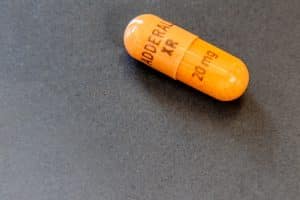
Since impaired noradrenergic and dopaminergic stimulation are thought to underline ADHD symptoms, doctors often prescribe people with ADHD stimulants – medications that increase the action of these chemical messengers.
Among the most commonly prescribed stimulant medications for ADHD are:
- Amphetamine/dextroamphetamine (Adderall)
- Methylphenidate (Concerta, Ritalin, Daytrana)
- Lisdexamfetamine (Vyvanse)
As well as stimulants, doctors may also prescribe selective noradrenaline reuptake inhibitors (SNRIs), such as Atomoxetine (Strattera), which also increase the action of noradrenaline, and antidepressants, such as bupropion (Wellbutrin), for patients with overlapping depressive symptoms.
Although estimates suggest stimulants decrease ADHD symptoms in about 70-80% of cases, many people are put off by these medications or wish to come off them because of their unwanted side effects.
Some of side effects of ADHD medications include:
- Loss of appetite
- Increased heart rate and blood pressure
- Problems sleeping
- Irritability
- Erratic behavior
- Nausea
- Seizures
In the long term, repeated use of stimulants at high doses can cause the onset of psychosis-like symptoms.
Highlighting this risk, in one case report, an eight-year-old boy with ADHD, who had no history of psychosis, developed hallucinations and symptoms of mania following eight months of methylphenidate (Ritalin) treatment.
Another finding showed Adderall-onset mania in 40% of people with comorbid ADHD and bipolar disorder.

What about long-term use of high-dose stimulants to treat ADHD?
Long-term use of high-dose stimulants also causes tolerance, meaning people need to take higher doses of a drug to have the same effect. Such tolerance increases the risk of physical or psychological harm.
In addition, if patients try to come off their medications, they can also experience withdrawal effects, which happen because the body becomes accustomed to having the drug in its system.
These ADHD withdrawal symptoms can include:
- Anxiety
- Paranoia
- Hallucinations
- Slowed heart rate
- Sleeping and eating problems
- Body aches
With the high risk for harm and adverse side effects, there’s a strong desire among the ADHD community for safer alternative treatments to manage their symptoms.
So could microdosing be the answer?
Grow 1 Year's Worth of Microdoses in Just 6 Weeks
Third Wave partnered with top mycologists to create the world’s easiest and best mushroom growing program (kit, course, and expert support).
- Pre-sterilized and sealed
(ready to use out of the box) - Step-by-step video and text course
- Access to growing expert in community
- Make your first harvest in 4-6 weeks
- Average yield is 1 - 4 ounces (28-108g)
- Fits in a drawer or closet
- Enter info for Third Wave discounts:
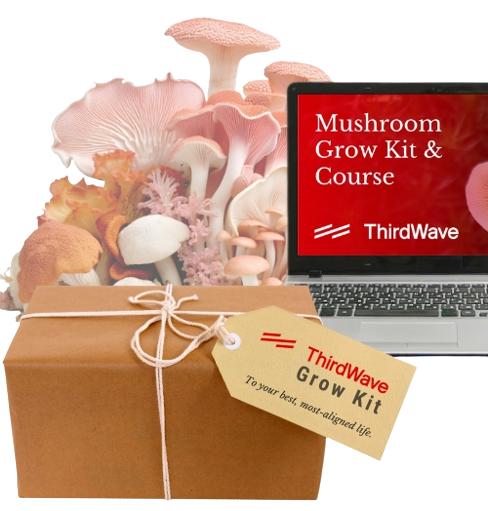
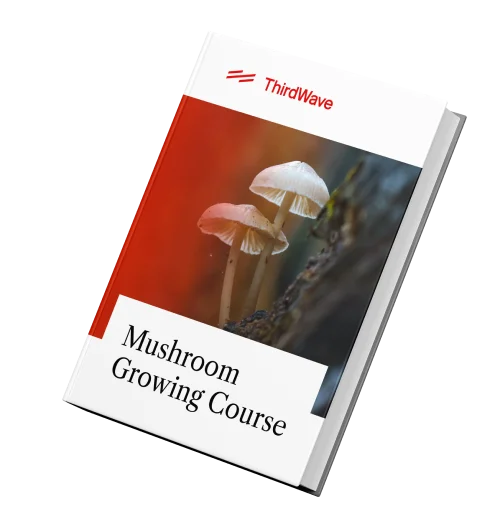
Grow 1 Year's Worth of Microdoses in Just 6 Weeks
Third Wave partnered with top mycologists to create the world’s easiest and best mushroom growing program (kit, course, and expert support).
- Pre-sterilized and sealed
(ready to use out of the box) - Step-by-step video and text course
- Access to experts in community
- Make your first harvest in 4-6 weeks
- Average yield is 1 - 4 ounces (28-108g)
- Fits in a drawer or closet
- Enter info for Third Wave discounts
Microdosing for ADHD
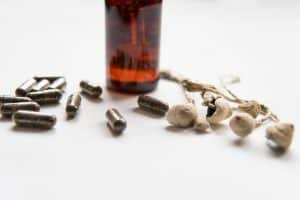
In 2019, the American researcher and writer James Fadiman published a hallmark paper titled “Might Microdosing Psychedelics Be Safe and Beneficial? An Initial Exploration.”
For the study, over 1000 participants took a hallucinogen at the microdose range (around ten micrograms) every three days. After 18 months, participants had significant self-reported improvements in mood, energy, work performance, and health habits.
This paper, among others, has seen a vast global rise in microdosing popularity over recent years, especially in places such as Silicon Valley, with entrepreneurs utilizing microdosing’s performance-enhancing and problem-solving effects to increase their workflow.
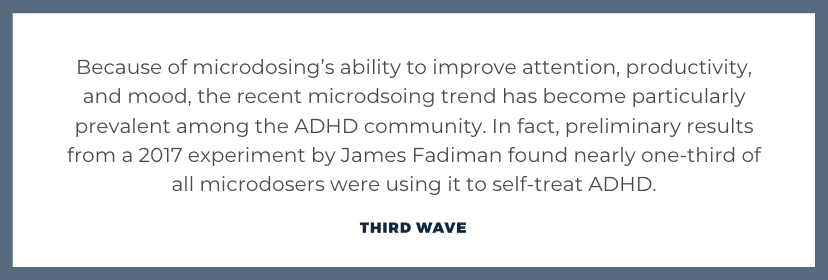
Because of microdosing’s ability to improve attention, productivity, and mood, the trend has become particularly prevalent among the ADHD community. In fact, preliminary results from a 2017 experiment by Fadiman found nearly one-third of all microdosers were using it to self-treat ADHD.
When thinking about microdosing vs. Adderall and other ADHD meds, one major advantage of microdosing is that, compared to stimulants, microdosing has much less harmful physiological effects. When practiced in a protocol with “days off,” microdosing is unlikely to cause tolerance, although there’s no official evidence to date supporting this claim.
Moreover, whereas ADHD medications may increase anxiety and irritability, microdosing can help decrease anxiety and increase calmness.
For these reasons, many people diagnosed with ADHD have begun to explore small doses of psychedelics as a more beneficial and safer alternative to their current ADHD medication.
In a Third Wave interview, Mike, a Territory Manager who quit his ADHD meds for microdosing, shared the benefits of microdosing vs. Adderall:
While Adderall and Vyvanse have, for the most part, assisted me in important parts of life – finishing school, allowing me to think about what I want and how to go about things I’d otherwise refuse to do like everyday chores – these medicines have diminishing returns.
Microdosing allows me to use my brain the way I want to – I can explore single thoughts one at a time, and I don’t need to worry about tolerance or the unpleasant come-down of amphetamines.
ADHD and Microdosing Research
Last year, a study from Maastricht University, published in Frontiers in Psychiatry, provided formal evidence for the effectiveness of microdosing for ADHD. For the study, the research team measured microdosing’s effect in over 200 ADHD adults. Their results showed a significant decrease in the participants’ symptoms and a significant increase in their well-being.
The same year, Maastricht University published another study assessing self-rated effectiveness for both microdosing and standard pharmaceuticals in different psychological disorders. In their findings, participants with ADHD scored significantly higher than standard medications in all three measures of “did it work,” symptoms disappearing, and improved quality of life.
Microdosing LSD vs. Microdosing Psilocybin for ADD/ADHD
If you’re somebody with ADHD interested in microdosing, you may be wondering which psychedelic substance is best. As the most well-researched substances, consistently showing low side effect profiles, we personally recommend using LSD or psilocybin.
Microdosing LSD for ADHD
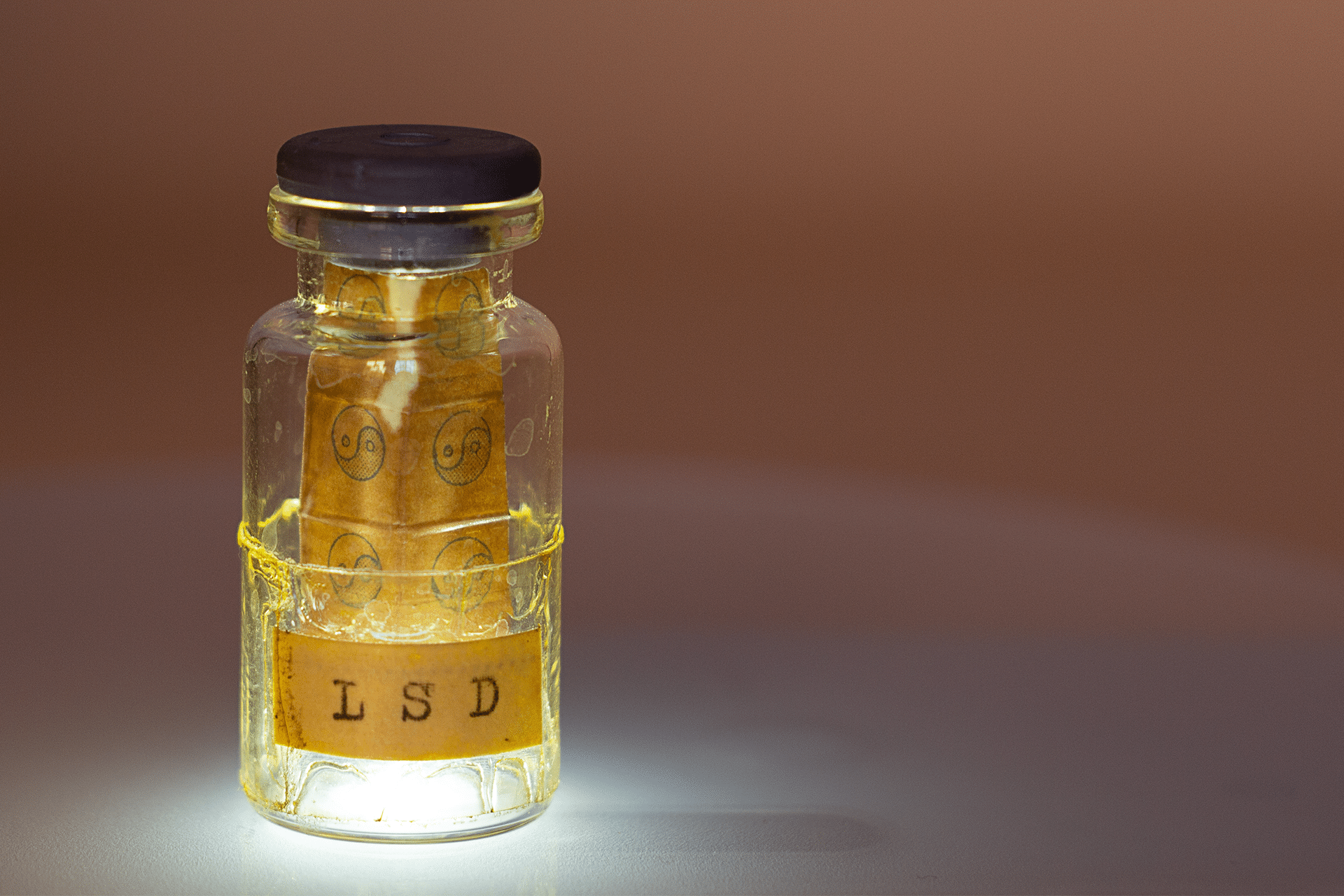
Most associated with productivity and energy, lysergic acid diethylamide (LSD) is one of the most popular psychedelics to microdose for ADHD.
Like stimulants, LSD can aid attention and motivation. However, since the experience is much more expansive, when comparing microdosing vs. Adderall, users can have increased focus but without feeling constricted.
One Reddit user shared:
Part of what makes microdosing LSD so great is its ability to make it easier to become immersed in whatever task you’re working on. You won’t feel that motivational “push” like you would with ADHD meds, but there is a nudge that helps me get into more of a flow state.
Based on the clinical potential, researchers from the biotech firm MindMed are currently undertaking the first placebo-controlled trial treating ADHD participants with LSD.
In a trial press release, Robert Barrow, the CEO of MindMed, commented:
We are pleased to activate our first site and excited to initiate patient enrollment of our ADHD proof-of-concept trial.The study builds on the growing evidence demonstrating LSD has the potential to improve mood and selective cognitive processes. Further, low doses of LSD have been shown to be safe, well tolerated and have minimal effects on physiological parameters.
Microdosing Psilocybin Mushrooms for ADHD
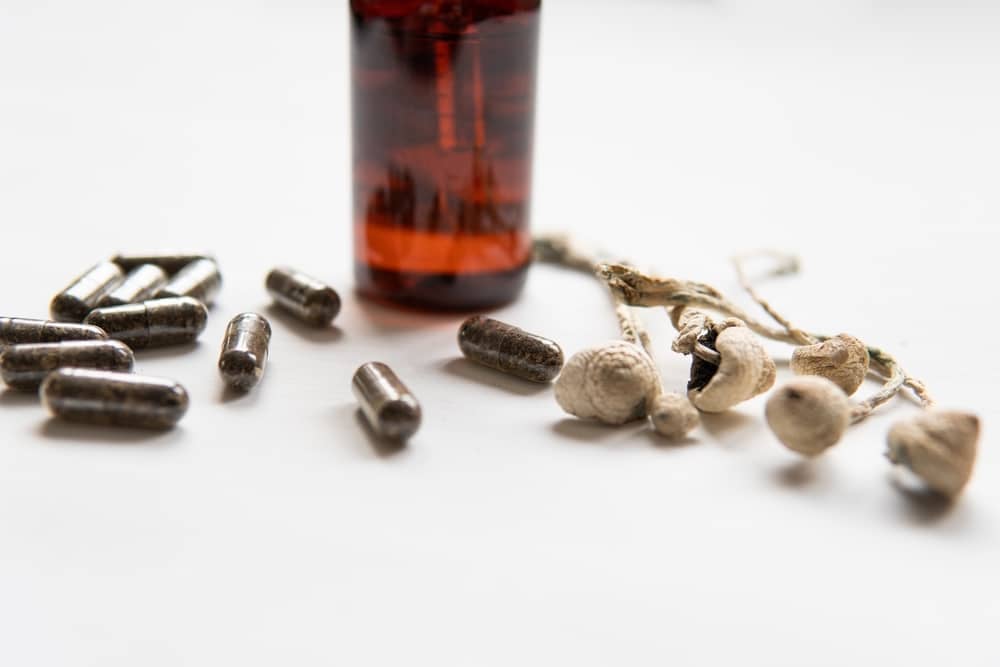
Although less associated with stimulant-like effects than LSD, microdosing psilocybin mushrooms is also a highly popular psychedelic for managing ADHD symptoms.
Some people may also prefer to use magic mushrooms since they are naturally derived rather than synthetic and can be easily grown at home.
If you live somewhere where spores can be legally sourced, and are interested in growing your own shrooms, be sure to check out the Third Wave’s Grow Kits, which come with a comprehensive step-by-step guide to grow high-quality, abundant flushes.
In comparison to LSD, psilocybin microdosing tends to be more associated with having a centered and embodied effect, which could help balance some of the ungrounded feelings associated with stimulants.
Additionally, with several clinical trials highlighting full-dose psilocybin as an effective, sustainable treatment for depression, this medicine may be particularly useful if you have both ADHD and a mood disorder.
To increase the cognitive effects of microdosing psilocybin, you could choose to combine psilocybin microdoses with niacin and lion’s mane supplements as part of a Stamets’ Stack. The dual capacity of psilocybin and lion’s mane in regenerating nerve cells could also help repair any neurological damage caused by ADHD medications.
If you’re interested in experiencing these neurological benefits of microdosing mushrooms, be sure to check out the Third Wave’s Mushroom Grow Kit and cultivate your own inexpensive, renewable supply.
Other Substances to Help Manage ADD/ADHD
Although most people associate microdosing with LSD and psilocybin, other psychedelic drugs, such as cannabis, ayahuasca, and 1P-LSD, could be helpful in managing ADHD.
Of these examples, cannabis is perhaps the most common for managing symptoms of ADHD. In a recent study, over 90% of students with ADHD reported cannabis effectively reduced their symptoms. However, most of them were using full psychoactive rather than low doses.
A pilot study mentioned by the Ayahuasca Foundation found ayahuasca also significantly improved ADHD symptoms. However, once again, participants were using full and not microdoses.
Regarding microdosing-specific research, in a naturalistic study, 12% out of 247 participants using microdosing to manage ADHD chose a novel lysergamide, which includes 1P-LSD, and only one used ayahuasca. Despite an overall improvement in symptoms, the study authors didn’t distinguish which compounds were most effective, meaning we can’t draw any conclusions about what other psychedelics are best to microdose for ADHD.
However, if you are interested in microdosing for ADHD, you can check out our Microdosing Psychedelics Guide differences between microdosing different substances, and be better informed about which medicine might be best for you.
Everything you need to know about Microdosing in one place
Download our FREE guide to learn how to begin a microdosing regimen, calibrate your dose level, and get the most out of your experience.
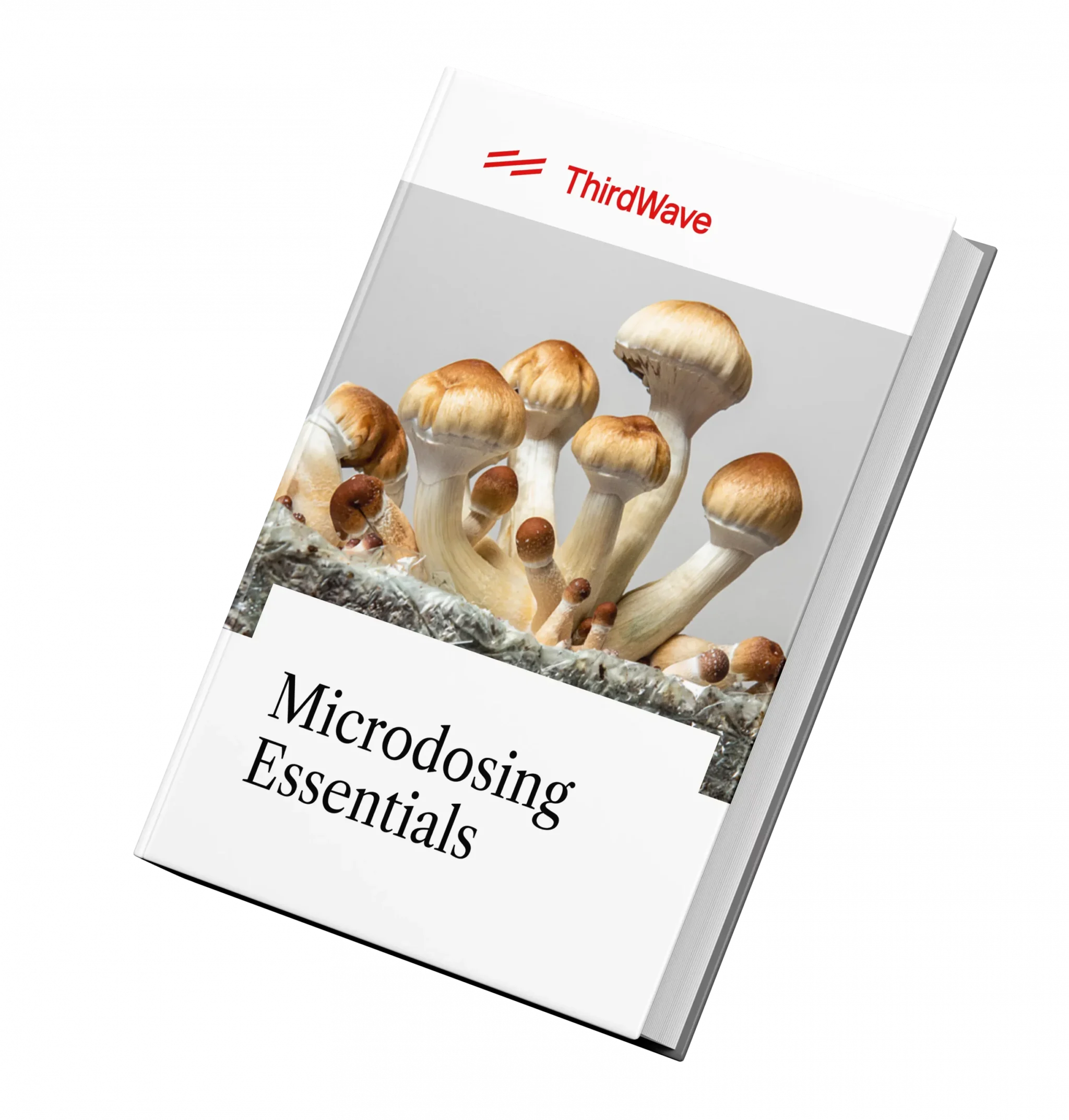
“This FREE Guide was just what I needed to take the first step into Microdosing. AND IT WAS THE BEST DECISION OF MY LIFE! After starting my microdosing regiment I now have more focus, energy and clarity into what it is I truly want in this world.”
James, New York
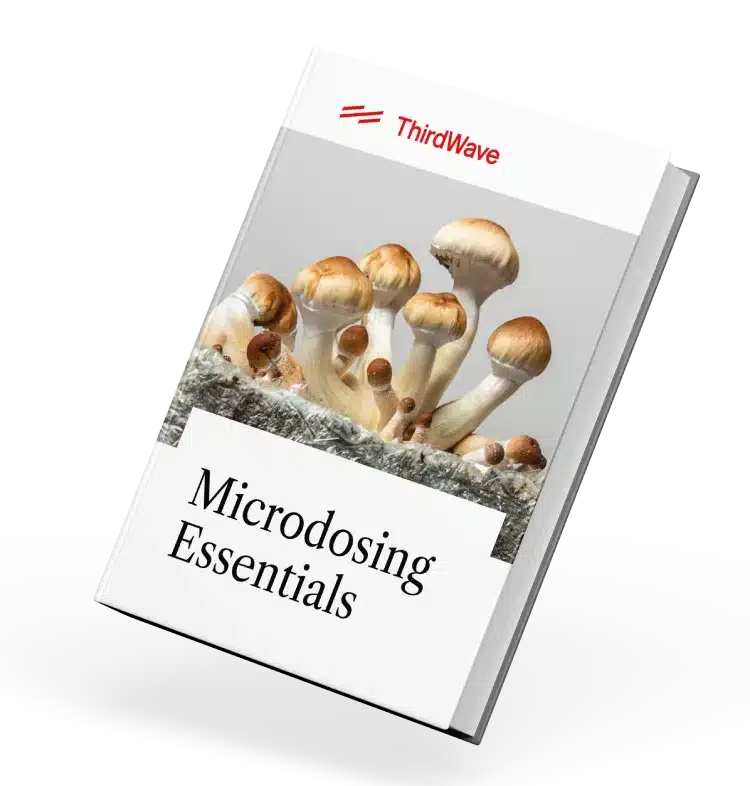
Everything you need to know about Microdosing in one place
Download our FREE guide to learn how to begin a microdosing regimen, calibrate your dose level, and get the most out of your experience.
Microdosing vs Adderall: Switching Amphetamines for Psychedelics
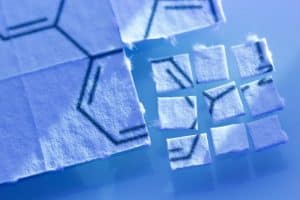
If you’re looking to switch your current medication for microdosing, it’s essential that you taper off slowly to prevent withdrawal effects.
Since LSD and psilocybin haven’t been contraindicated with amphetamines or antidepressants excluding MAOIs, introducing microdosing while tapering off these medications could help reduce the chance and impact of withdrawal.
However, as both psychedelics and antidepressants act on serotonin receptors, it’s possible they may interact. Therefore, for safe practice, it may be best to wean off of antidepressants with guidance from your prescriber prior to microdosing substances like LSD or psilocybin.
For your microdosing dose and schedule, a common practice is to take one-tenth of a full dose for three days, and after the third day have a microdosing break for two days. During your regime, scheduling in time for healthy and integrative practices, such as yoga, meditation, and journaling, can help you reap the most benefits.
For an in-depth, practical, and personalized guide on how to microdose and gain the most benefits, be sure to visit the Third Wave’s Microdosing Course.
Final Note On Microdosing VS Adderall…

A final note of caution is that if you do intend to get off your ADHD medications, please do so under the guidance of your prescribing clinician, as their medical expertise will help ensure your safety in the process.
You can find a list of medical professionals knowledgeable about psychedelic substances and microdosing by visiting our Psychedelic Directory.
Grow 1 Year's Worth of Microdoses in Just 6 Weeks
Third Wave partnered with top mycologists to create the world’s easiest and best mushroom growing program (kit, course, and expert support).
- Pre-sterilized and sealed
(ready to use out of the box) - Step-by-step video and text course
- Access to growing expert in community
- Make your first harvest in 4-6 weeks
- Average yield is 1 - 4 ounces (28-108g)
- Fits in a drawer or closet
- Enter info for Third Wave discounts:


Grow 1 Year's Worth of Microdoses in Just 6 Weeks
Third Wave partnered with top mycologists to create the world’s easiest and best mushroom growing program (kit, course, and expert support).
- Pre-sterilized and sealed
(ready to use out of the box) - Step-by-step video and text course
- Access to experts in community
- Make your first harvest in 4-6 weeks
- Average yield is 1 - 4 ounces (28-108g)
- Fits in a drawer or closet
- Enter info for Third Wave discounts

